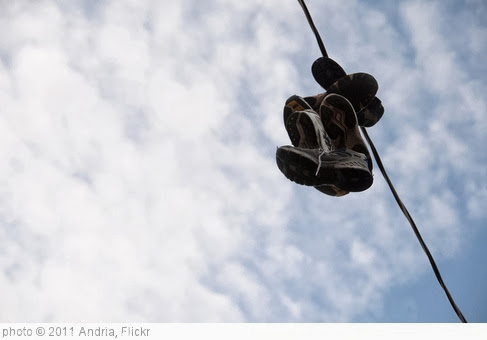
You all are in for a treat today because my brilliant, compassionate, and wise little sister, Amanda Opelt, has contributed a guest post about generational poverty in America that is both powerful and practical. The post materialized after a long phone conversation between us in the wake of my controversial post about Dave Ramsey and poverty, at which point I realized my sister knew way more about this topic than I did.
Amanda has spent most of her adult life working in the non-profit sector—first in India, then in inner-city Nashville, and now in Boone, North Carolina as a field support coordinator for Samaritan’s Purse. But more than that, Amanda embodies more than anyone I know the principle of loving one’s neighbor. No matter where she finds herself, she is present and loving to the people around her, whether it’s an orphan suffering from TB in a slum in Hyderabad, India, or an elderly neighbor down the street from her home in Boone. When it comes to following Jesus, she’s the real deal. She's faithful in the little things.
I hope you learn as much for this post as I did!
***
Immediately after college, I packed my bags and moved to India because at age 22 I thought I "had a heart" for the poor.
I figured India was probably a pretty good place to find poor people, and I was right. The poverty in that foreign land is pervasive, and in a country where corruption and ideological biases cultivate very little opportunity for upward mobility, it's not hard to see the orphans, beggars, and leprosy patients around you as one-dimensional victims of the sinful systems around them. It is a fair assessment in some ways, and I must say, loving the people of India came easy. Though their stories were gut-wrenching, my heart felt no complication in its compulsion to serve them.
But after 6 months, I realized that my educational emphasis in philosophy made the relief and development work to which I aspired demanding on my skill sets. I packed my bags again and came home to my moderately privileged lifestyle the US, confused about my calling and certain I was destined to live a life languishing apathetically in my middle-class routine
A job search led me to a position as a ministry-based social worker for an organization that provided job skills, mentoring, childcare and Bible study for low income women in the inner city of Nashville.
I'll admit I was skeptical at first. I didn't know the first thing about urban poverty. Like many Americans, I felt a certain sense of indifference towards poor in America, and there was maybe, buried deep in my subconscious, even a mild contempt. I had this sneaking suspicion that the poor in my own country couldn't possibly be like the poor I had encountered in India. This was the birthplace of the American Dream, a place where anyone who had a will to try and a strong work ethic could improve his or her lot in life.
Someone once told me that animal shelters have an easier time fundraising than homeless shelters, and sadly, I’m not surprised. Animals aren't too complicated, and they are one-dimensional in their in-culpability. There is a more complex emotional reaction to the homeless in America. There is the compulsion to wonder, "why can't they just get a job?!" When one is born in the Land of Opportunity, it is easy to assume that the birthright of every American is to have and equal opportunity and a decent shot at life, liberty and the pursuit of happiness.
What is opportunity? What does it mean to be poor?
Most middle class Americans are familiar with circumstantial poverty—one bad investment or the loss of a job leads to a period of financial difficulty. What I learned in the inner city is that to be caught in the cycle of generational poverty is to experience a bankruptcy of spirit, a deficit of hope. It is poverty of education, community, safety, health, and spiritual guidance.
I met a woman whose first memories were of being locked up in a closet while her mother, a prostitute, "entertained" her guests. I met a woman who, as a little girl, watched a cross burn in her front yard and endured teachers at her new school shouting racial slurs at her because the community around her was angry about integration. I cried with women who remember in excruciatingly vivid detail, sexual and physical abuse suffered at the hands of relatives and friends, abuse that would go on for years unstopped. These were children, many with developmental and learning disabilities due to instability during their earliest years, that were pushed through failing schools with burned out teachers and deteriorating textbooks and facilities.
Abuse, racism, corruption; we all experience these hardships to a varying degree. But for the low-income women I worked with, their lives were a perpetual house of cards. They had no resources, no safety nets to keep them from going under. One step forward, two steps back. A broken down car means you can't get to work, and missing even one day of work means you can’t make rent that month. A sick child means you can get fired from a job that keeps you at "part time" status because they don't want to pay you for sick days and holidays. Finally getting out of the welfare system means losing any childcare assistance, and childcare costs often break the bank. I knew a woman who wouldn't break up with her abusive boyfriend because he was her only ride to work. I'm not saying there is no such thing as bad decisions, but we all make bad decisions and only some of us have to face the full force of their consequences.
When we hear the term “safety net,” most of us think of social safety nets like food stamps or medicaid. When I think of safety nets in my own life, I think of parents who were willing to pitch in a bit to help me pay rent my first month in my own place. I think of a successful elementary school and several teachers who really cared and invested some extra time to make sure I didn't fail algebra. I think of a safe and secure community where I could run and play outside. I think of a caring doctor who helped when I was going through a difficult mental and physical health challenge (and health insurance that enabled me to pay him).
This month marks the 50th anniversary of President Johnson's Declaration of the War on Poverty. While we have come a long way since Johnson made that historic speech, in 2011, the U.S Bureau of Labor conducted a study and found that 46.2 million Americans (roughly 15% of the population) lived at or below the poverty line. Many of those individuals are children (Poverty defined is a family of four making $23,021). And for anyone who ever wondered "why can't they just get a job?" you'll be interested to know that 10.4 million of these Americans are considered the working poor. In fact, the working poor made up 7 % of the work force in the US. Most of these were workers stuck in part time jobs, and women were more likely to be among the working poor, as were blacks and Hispanics (www.bls.gov).
I did the math and found that someone working full time at the current minimum wage (assuming they had paid sick days) would only make $15,080 a year. This was the painful reality of so many of my students in the inner city of Nashville. Bottom line: it's just not as simple as "stop being lazy" or "just get a job."
I wish I could provide some clear-cut resolution, a silver bullet solution that churches across America could implement to serve the needy. A few women I really respect have showed me that the only way to cultivate effective change in the lives of those in need is to become, yourself, a sort of safety net for them. The resource, the friend, the positive voice, the math tutor, the spiritual mentor they never had. It's complicated, and it can be messy. But Jesus never seemed to mind a mess, and no one he ever healed or scolded or cried for or embraced had a simple story.
The complexity of the need of the human heart is something only God can know. But perhaps the first step is to begin the process of tweaking your understanding, to realize that the playing field is not always level and not everyone was born with bootstraps. Before you judge the circumstances of those around you, consider the humbling reality of a sovereign God who "sends poverty and wealth; He humbles and He exalts. He raises the poor from the dust and lifts the needy from the ash heap; he seats them with princes and has them inherit a throne of honor" (1 Samuel 2:7-8).
***
To learn more about the organization Amanda served in Nashville, check out the Christian Women’s Job Corps of Middle Tennessee. CWJC empowers individuals to break harmful cycles caused by poverty by providing education, mentoring and resources. Their vision is “to create a community where all individuals can experience transformation of body, mind, heart, and spirit.”
Oh, and for fun, here's a picture of the Held sisters circa 1988:












